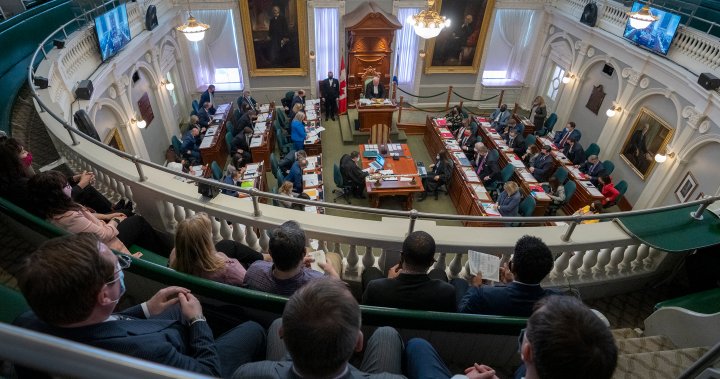Canada
Nova Scotia legislature opens for new session

Nova Scotia Legislature Resumes with New Session and Key Agenda Items
Resumption of Legislative Business After Provincial Election
The Nova Scotia legislature is set to reconvene on Friday, marking its first sitting since the provincial election held in November 2024. This session is expected to be significant, as the Progressive Conservative (PC) government, led by Premier Tim Houston, will outline its priorities and agenda for the coming year. The PCs secured a strong mandate in the election, winning 43 out of 55 seats, which positions them to implement their policies with relative ease. Adding to the significance of this session, Lt.-Gov. Mike Savage will deliver the throne speech, which will be his first since taking office in December 2024. This speech will formally set out the government’s vision and legislative goals for the upcoming year.
The Throne Speech and Government Priorities
The throne speech is anticipated to highlight key areas of focus for the Progressive Conservative government, including economic development, resource management, and addressing pressing social issues. Premier Tim Houston has already signaled that the government will emphasize the development of Nova Scotia’s natural resources as a strategy to strengthen the provincial economy. This approach is likely to be a central theme in the throne speech, as the province seeks to leverage its natural assets to create jobs and attract investment. However, the government’s agenda will also need to address challenges such as affordability, healthcare access, and housing shortages, which were major concerns during the election campaign.
The Upcoming Budget and Economic Focus
One of the most highly anticipated events of this legislative session is the tabling of the 2025-26 provincial budget, scheduled for Tuesday. The budget is expected to provide detailed insights into how the government plans to allocate resources to support its priorities. Given the emphasis on natural resource development, it is likely that significant investments will be made in sectors such as forestry, mining, and energy. Additionally, the budget may include measures to address the economic pressures faced by Nova Scotians, such as rising costs of living and limited access to affordable housing.
Opposition Plans and Challenges
While the Progressive Conservatives hold a strong majority, the Official Opposition, led by the Nova Scotia New Democratic Party (NDP), and the Liberal Party, which now has only two members, are expected to play a crucial role in holding the government accountable. The NDP and Liberals are likely to present a unified front in advocating for policies that address the province’s most pressing challenges. Key areas of focus for the opposition will include housing affordability, healthcare access, and strategies to support vulnerable populations. Additionally, the opposition is expected to press the government for a more robust response to the looming threat of U.S. tariffs, which could have significant implications for Nova Scotia’s economy, particularly in industries such as forestry and manufacturing.
Policy Debates and Legislative Focus
As the legislative session progresses, debates are expected to be lively, with the opposition pushing for greater action on social and economic issues. Housing affordability, in particular, is likely to be a major point of contention, as Nova Scotia continues to grapple with rising house prices and rental costs. The opposition may also challenge the government’s approach to healthcare, calling for increased funding and reforms to improve access to services. On the economic front, the government’s focus on natural resource development could spark debates about the balance between economic growth and environmental sustainability.
Looking Ahead to the Legislative Session
The resumption of the Nova Scotia legislature marks the beginning of an important period for the province, as the government and opposition navigate a complex and challenging agenda. With key issues such as economic development, affordability, and healthcare on the table, the decisions made during this session will have far-reaching implications for Nova Scotians. The Progressive Conservatives will aim to deliver on their election promises while managing the province’s finances and responding to external threats such as U.S. tariffs. Meanwhile, the opposition will work to ensure that the government remains accountable and prioritizes the needs of all citizens. As the session unfolds, Nova Scotians will be closely watching to see how their elected representatives address these critical issues and shape the province’s future.